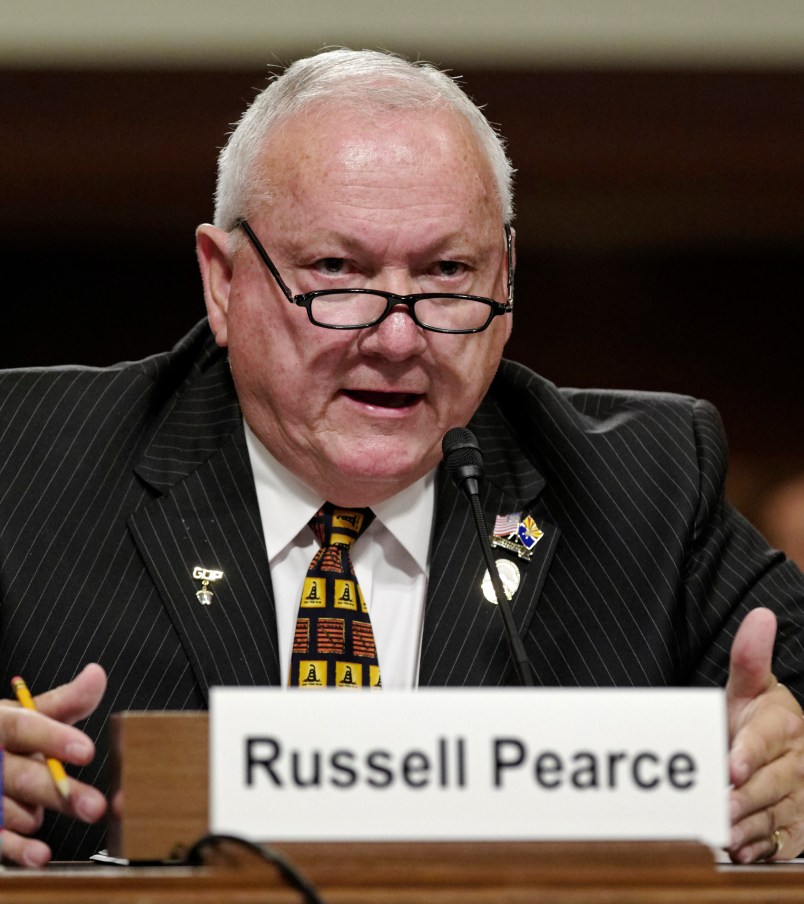The Arizona Republican who said that women on welfare should be sterilized is not a fan of undocumented immigrants either.
Former Arizona state Sen. Russell Pearce (R), who resigned as first vice chairman of the Arizona Republican Party on Sunday, discussed Operation Wetback and undocumented immigrants with a caller on his radio show in June.
The caller brought up Operation Wetback, a controversial plan carried out by the federal government in 1954 to deport undocumented immigrants back to Mexico. Border patrol officers also deported the children of immigrants who were born in the U.S.
The caller initially referred to the policy as “Operation W-Back,” and eventually asked if he could say the word itself.
“Absolutely,” Pearce responded. “It’s not us calling names. That’s the name of the operation.”
The caller then identified the program as “Operation Wetback.”
“And then it wasn’t derogatory, it wasn’t meant to be derogatory,” Pearce then explained. “It was a term that was pretty commonly used back then.”
Pearce went on to praise the program, which broadly targeted Mexican immigrants, causing many to flee the U.S. before being arrested.
“We didn’t have the ability to transport or communicate like we do today. Nothing. Nothing compared to what we have today. And in spite of that, because of that operation and their vigilance, 80 percent of the 1.4 million people that left the United States left voluntarily with that operation. He didn’t deport ‘em all. They left voluntarily because the threat of enforcement,” he said.
In 2011 as an Arizona state representative, Pearce called for the government to reinstate Operation Wetback and deport undocumented immigrants. At the time, he said he only used the term “wetback” in the context of the operation.
“You don’t use it today because people have tried to make it offensive,” Pearce said, according to the East Valley Tribune. “Things change, and you know what? Who cares? Whatever they want to be called, I’m OK with that.”
On his radio show in June, Pearce compared Operation Wetback to Arizona’s controversial S.B. 1070, which allows police to check people’s immigration papers when they have been detained.
According to Pearce, undocumented immigrants left the state when the law was passed, causing crime rates dropped.
“That was simply the threat of enforcement,” he said. “They know the threat of arrest is there. They leave.”
The caller then complained about President Ronald Reagan’s “amnesty program,” and said that the 14th Amendment, which grants U.S. citizenship to those born in the country, has not been interpreted properly. He said that “anchor babies” should be deported.
Pearce agreed that the 14th Amendment “never applied” to undocumented immigrants and their children.
Wendy Rogers, the Republican candidate for Congress representing Arizona’s ninth district was on the show and addressed her stance on immigration, but she did not join the discussion of Operation Wetback and S.B. 1070.






